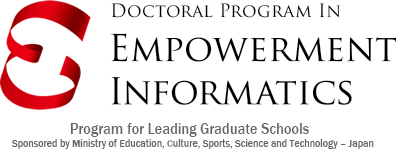Faculty Comments, featuring messages, names, and photos of the Program Director, Program leaders, and instructors.
FacultyFaculty
03.Faculty Comments
Message from the Program Leader
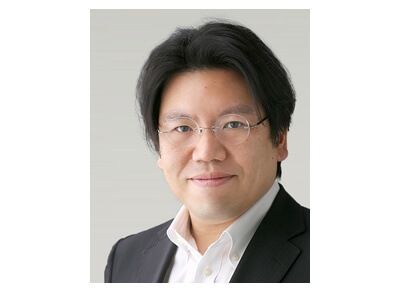
Faculty of Engineering, Information and Systems
Program Leader, Kenji Suzuki
Professor, Faculty of Engineering, Information and Systems
In 2005, I was appointed to Tsukuba University, where I established the Artificial Intelligence Laboratory to carry out new research to support human beings by fusing human intelligence with the functions of machines. It is essential that people understand artificial intelligence so that it can help to support them. Technologies that empower people are technologies that give each and every human being the power to live freely as he or she desires. They are closely related to research on artificial intelligence. The academic domain to which this program belongs is interdisciplinary human informatics, which also includes artificial intelligence. Our aim is to train PhD candidates systematically to master the ability to design systems to empower human beings, through interdisciplinary cooperation with the fields of psychology, medicine, and the arts in addition to informatics and engineering. The competencies (abilities) identified for purposes of human-resources development also can be said to be properties that are essential to global leaders. These consist of cross-functional abilities combining the ability to take an overview of a subject and multifaceted thinking, expressive abilities to understand and describe the essence of a technology or topic, and practical abilities to achieve goals together with teammates from diverse backgrounds. While being a leader is a role, leadership is not a talent but an acquired skill. The same is true of entrepreneurship. Here, students can learn the knowledge and methods to implement in society the basic research and technologies learned in the university. Think of it as an opportunity to improve your own ability to change the world.
Message from the Program Leader
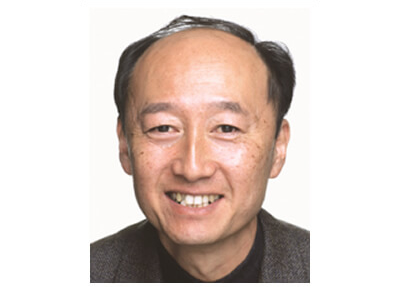
Hiroo Iwata
Professor, Faculty of Engineering, Information and Systems
When I took this office at the University of Tsukuba in 1986, I launched “haptics”, which is a field of research related to tactile sense and kinetic sense presentation technology, for the first time in the world. Because tactile and kinetic senses are hard to understand without experience, I emphasized demonstrative forms of presentation. Through such efforts, the number of researchers in this field have increased, and in 2005, we materialized a world conference entitled World Haptics.
To share innovative technology with the world, we must go beyond the boundaries of peers and have broader contact with the society. Accordingly, we have advocated a form of expression called “device art”, in which art displays the essence of technology. Even an excellent technology may be buried in the laboratory unless it is properly expressed. For example, Gutenberg was not the first person to invent printing technology, but he left his mark on history for his excellence in fonts and contents.
The qualities required for global leaders, which can be drawn out of my activities to date, are “Presentation Ability” to express the essence of technology in the proper manner, “Frontline Ability” to complete the exhibition that offers actual experience, and “Interdisciplinary Ability” to cross the border between engineering and arts, which have different evaluation systems. This Program aims to systematically develop talents within this broad framework of designing systems to empower people.
Messages from the Program Faculties
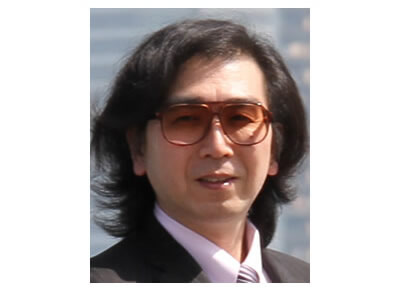
Sub-leader of the Supplementation area
Yoshiyuki Sankai, Sub-leader of the Supplementation area
Professor, Faculty of Engineering, Information and Systems
The MEXT global COE on Cybernics: fusion of human, machine, and information systems, successfully helped build the framework to explore talent development and international education and research in the field of human assistive technology. This COE has evolved into the “Supplementation” area in the Ph.D. Program in Empowerment Informatics, which is a degree program that aims to assist people’s independent lives and solve common issues in human society.
In Supplementation, the purpose of the curricula is two-fold: to supplement physical and sensory functions of disabled people due to aging, disorders, or injury and to develop talents. In addition to learning various integrated fields necessary for physical and cognitive assistance and supplementation of human functions (e.g., humans, robots, and information), students have to study and practice interdisciplinary coursework that encompasses medical science, business, psychology and arts as well as advanced tutorial practicum. In this way, we aim to cultivate students’ abilities to develop innovative human assistive technologies and to conduct practical research simultaneously.
I do hope that students will cultivate themselves in this program as leading doctors who lead the world with a passion and enthusiasm for solving global issues.
Messages from the Program Faculties
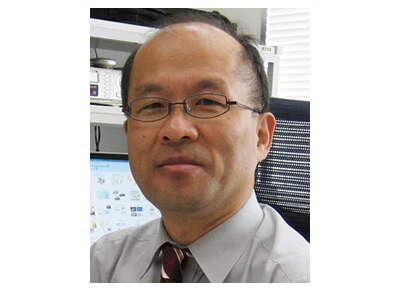
Sub-leader of the Harmony area
Toshiyuki Inagaki, Sub-leader of the Harmony area
Vice President of University of Tsukuba
Professor, Faculty of Engineering, Information and Systems
One of this program’s three pillars is “Harmony”, which means to harmonize artifacts with humans. As an example of an artifact, consider an advanced driver assistance system implemented on a car. The system must be flexible as situations often change while driving.
For example, assume that you are driving a car to attend an important meeting that is 80 km away and you notice unexpected traffic congestion ahead. If you continue on your current route, you may be late. Thus, you decide to look for other routes. However, because driving and searching for alternate routes cannot be safely performed simultaneously, a system that “drives your car for you” would be very helpful.
Then as you drive on this new route, you become tired. In order to stretch your legs, you need to be free from the pedals. Hence, a system that also controls the speed and distance between cars would be useful. A little later you try to change lanes but do not notice a car in your blind spot. A system that “alerts” you of impending danger may help you avoid an accident. After you switch lanes, the car ahead of you suddenly slams on the brakes. Although you notice this, you are unable to instantly hit the brakes. However, having a backup system that automatically applies the brakes may save your life.
As demonstrated above, machines need to change their forms of assistance. Harmony aims to create the theories and technologies for this purpose. Why don’t you join us in creating such systems?
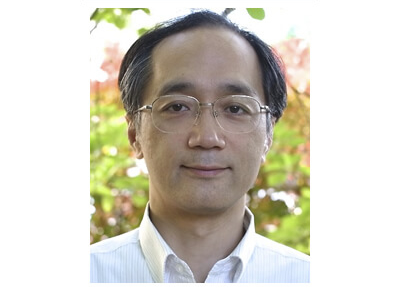
Sub-leader of the Extension area
Kazuhiko Kato, Sub-leader of the Extension area
Professor, Faculty of Engineering, Information and Systems
The University of Tsukuba was founded as a “university of new vision”, and our graduate schools were separately organized at that time as a two-year Master’s course and a five-year integral Ph.D. course. Admissions and curriculum management of these two courses were separate.
When I enrolled in the Ph.D. course at Graduate School of Engineering almost 30 years ago, I was fortunate enough to receive a scholarship from the then Japan Scholarship Organization (the current Japan Student Services Organization). This financial support allowed me to immerse myself into my research. I consider the fact that I was able to focus on research for all five years of the graduate program as big as an accomplishment as passing my graduate school examination.
In addition, the laboratory I belonged to was loosely associated with two other laboratories, and the instructors and the students voluntarily and actively communicated with each other. Thanks to this supportive environment, I was able to study both in my specialty and two other related areas. I relished the opportunities for animated discussions not only with such great instructors in these other fields but also with my peers in the other labs. It was not until after I left the university that I truly appreciated how beneficial this environment was.
This Ph.D. Program in Empowerment Informatics is superb environment, which is much more empowering than the environment I encountered 30 years ago. I am confident that students in this program will produce outstanding research results and develop as future leaders as this rich environment is blessed with abundant research and education opportunities as well as abundant nature of Tsukuba surrounding the university.


